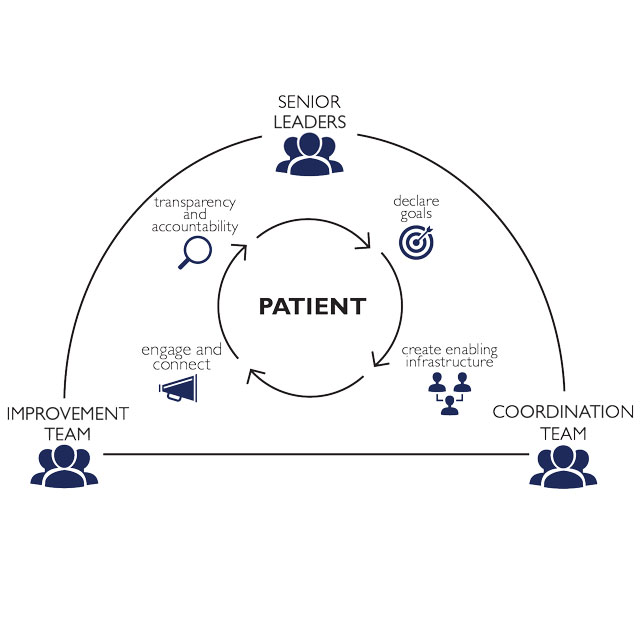The Johns Hopkins Armstrong Institute for Patient Safety and Quality, in collaboration with the American College of Surgeons, has been awarded a nearly $4 million contract, with the option of an additional $12 million over three years, from the Agency for Healthcare Research and Quality (AHRQ) to improve the outcomes and experiences of surgery patients across the United States. The project will enable more than 750 hospitals to implement enhanced recovery after surgery (ERAS) protocols, which have been shown to reduce complications, decrease lengths of stay and improve the patient experience.
ERAS strategies are employed from the time a surgeon decides to operate to after a patient is discharged following a procedure. Protocols include avoiding prolonged fasting periods, using opioids sparingly and applying multiple methods to control pain. ERAS requires close teamwork among surgeons, anesthesia providers and nurses.
Elizabeth Wick, who is now an adjunct associate professor of surgery at the Johns Hopkins University School of Medicine, introduced ERAS to Johns Hopkins, along with nurse clinician Deb Hobson, in 2013. They joined ERAS with AHRQ’s Comprehensive Unit-Based Safety Program (CUSP), a five-step culture change intervention that engages front-line health care staff members in preventing harm. CUSP can help overcome the lack of local buy-in that often dooms improvement efforts.
Through the combination of both initiatives, hospital length of stay for patients having colorectal surgery was reduced by about 1.5 days, costs dropped by $1,500 and patient complications went down, including a 50 percent decrease in surgical-site infections.
“With the success of ERAS at our hospital, we are excited to share this approach with other institutions,” says Michael Rosen, associate professor with the Armstrong Institute. “This will be an important step in improving patient care throughout their surgery process. The challenge is the protocols are not just changes within the operating room but across the entire continuum of care. We’re offering support in the form of faculty presentations, virtual learning and coaching calls with people who have managed this process in the past.”
In the new project, called the AHRQ Safety Program for Enhanced Recovery After Surgery, improvement and research efforts will initially focus on colorectal surgery. Future phases will expand to introduce protocols in other areas, such as bariatric surgery, orthopaedic surgery, gynecology and emergency general surgery.
“Too often, patients suffer complications and prolonged hospitalizations after surgery, although the steps to prevent these results are known,” says Peter Pronovost, director of the Armstrong Institute and senior vice president of patient safety and quality for Johns Hopkins Medicine. “This program brings these recommended practices together into one coordinated, unified program where everyone — clinicians, patients and their loved ones — understands what they must do for the best possible outcome.”
Adds Rosen, “ERAS is a high-value intervention: It simultaneously yields better outcomes at a lower cost, which is why we’re seeing the level of interest that we are.”
Hospitals interested in participating can email [email protected] for more information.



